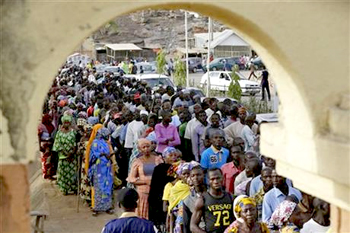Maiduguri (Nigeria), Mar 29: Witnesses and officials say Boko Haram extremists killed 39 people, including a legislator, in northeastern Nigeria, disrupting the country's presidential election.

Residents of the town of Miringa say Boko Haram militants torched people's homes early yesterday and then shot them as they tried to escape.Twenty-five reportedly died.
Witnesses and officials say another 14 people, including Gombe state legislator Umaru Ali, died later yesterday in attacks on the towns of Biri and Dukku.
Elsewhere, tens of millions of Nigerians took part in the closely contested and largely peaceful presidential election.




Comments
Add new comment